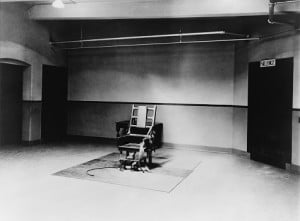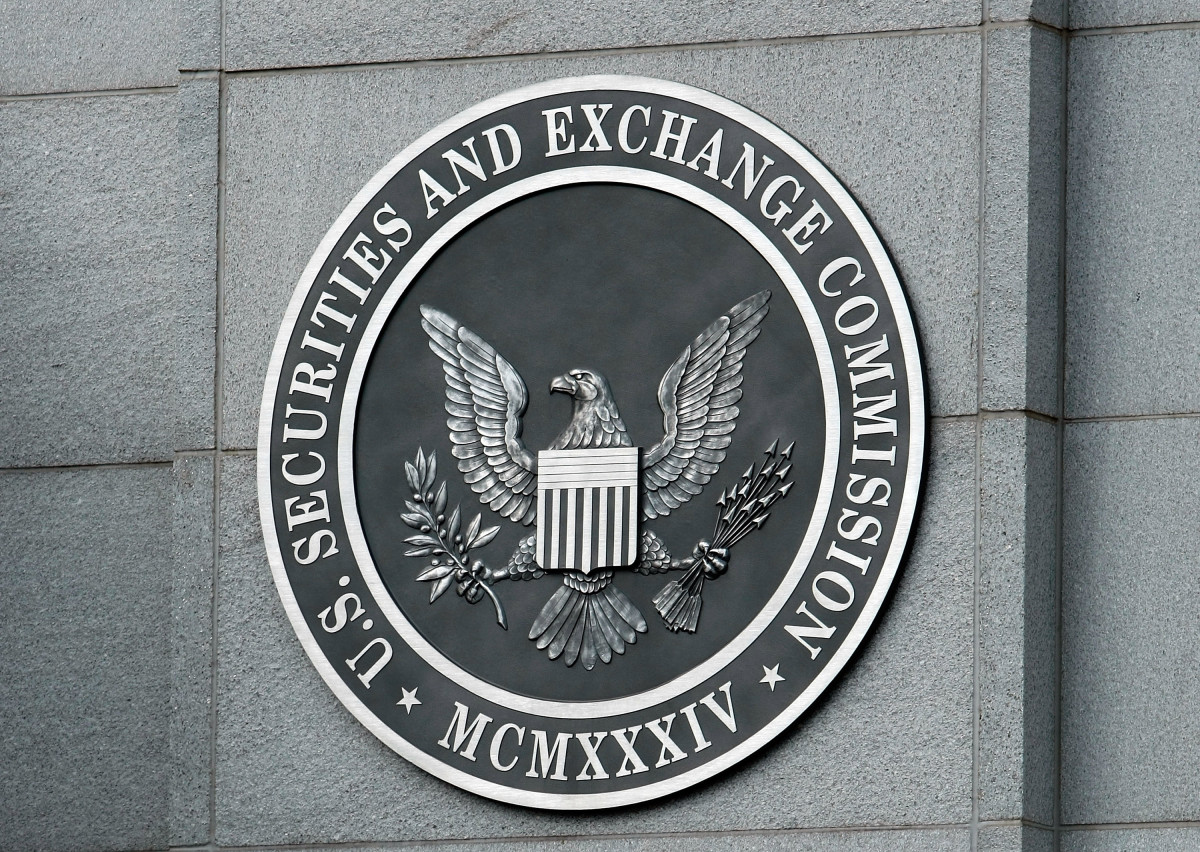
Who wants to buy some shares of a couple of embattled players in the r/WallStreetBets saga?
Category Added in a WPeMatico Campaign

Who wants to buy some shares of a couple of embattled players in the r/WallStreetBets saga?
Last Friday, one of the top-ranked Biglaw firms in the country started a trend that would rock the industry in terms of 2021 associate compensation.
Willkie — a firm that brought in $868,000,000 gross revenue in 2019, placing it at No. 49 on the latest Am Law 100 ranking — announced that it would be offering special bonuses to its associates for all of the hard work they put in during the especially trying times that were created by the pandemic. At the time, the firm’s bonuses ranged from $7,500 to $40,000, and associates were thrilled by the good news. Then, Davis Polk got involved and offered special bonuses that completely blew the Willkie numbers out of the water — and the rest of Biglaw followed, matching the new $12,000 to $64,000 range left and right.
Is the firm going to leave its associates hanging? Willkie has thus far remained silent on whether it will cover the difference. That is, until today. It’s been a week, and Willkie has now decided to speak up. Lo and behold, associates at the firm will now be receiving the special bonuses that have become the prevailing market rate. Check out the new Willkie bonus scale, below:

All those eligible for special bonuses at Willkie will receive half of the funds on June 30, and the other half on September 30. Congratulations to everyone at the firm!
(Flip to the next page to see the full memo from Willkie.)
Remember everyone, we depend on your tips to stay on top of important bonus updates, so when your firm matches, please text us (646-820-8477) or email us (subject line: “[Firm Name] Matches”). Please include the memo if available. You can take a photo of the memo and send it via text or email if you don’t want to forward the original PDF or Word file.
And if you’d like to sign up for ATL’s Bonus Alerts (which is the alert list we also use for salary announcements), please scroll down and enter your email address in the box below this post. If you previously signed up for the bonus alerts, you don’t need to do anything. You’ll receive an email notification within minutes of each bonus announcement that we publish. Thanks for all of your help!
 Staci Zaretsky is a senior editor at Above the Law, where she’s worked since 2011. She’d love to hear from you, so please feel free to email her with any tips, questions, comments, or critiques. You can follow her on Twitter or connect with her on LinkedIn.
Staci Zaretsky is a senior editor at Above the Law, where she’s worked since 2011. She’d love to hear from you, so please feel free to email her with any tips, questions, comments, or critiques. You can follow her on Twitter or connect with her on LinkedIn.

Taylor Swift (Photo by Karwai Tang/WireImage)
* Taylor Swift and a Utah theme park have have dropped their copyright infringement claims against one another. Guess they no longer have “bad blood” and would rather “shake it off”… [Rolling Stone]
* A top Obama lawyer is being vetted for an antitrust position at the Department of Justice. [Politico]
* A Louisiana man is in hot water for pretending to be a lawyer. [ABC News]
* The University of Southern California has agreed to a $852 million payout to settle sexual abuse claims against a longtime campus gynecologist. [Yahoo News]
* Marijuana will soon be legal in the Empire State. Kind of gives new meaning to a “New York state of mind”… [New York Post]
 Jordan Rothman is a partner of The Rothman Law Firm, a full-service New York and New Jersey law firm. He is also the founder of Student Debt Diaries, a website discussing how he paid off his student loans. You can reach Jordan through email at jordan@rothmanlawyer.com.
Jordan Rothman is a partner of The Rothman Law Firm, a full-service New York and New Jersey law firm. He is also the founder of Student Debt Diaries, a website discussing how he paid off his student loans. You can reach Jordan through email at jordan@rothmanlawyer.com.

Today Was A Good Day — For Associate Special Bonuses: Cleary, Paul Hastings, Debevoise, Simpson Thacher, Paul Weiss, and Goodwin are all giving associates generous bonuses.
Vote For Your Fave Zoom Fail: The Elite Eight.
Will There Be More NIL Laws? Checking in with Oregon and Florida.
Capitol Rioter’s Bonkers Legal Argument: Why am I not surprised?

Ed. Note: Welcome to our daily feature Trivia Question of the Day!
Yesterday, Virginia banned the death penalty. How many other states have already banned capital punishment?
Hint: Though Virginia isn’t the first in the nation to ban the death penalty, it is the first southern state to do so.
See the answer on the next page.
Responding to Mark Herrmann’s post on the “unbearable darkness of partisanship,” and his plaintive question of “Am I the only one who can’t take it anymore,” the answer is no, Mark, you aren’t. I am right there with you. Mark wonders why we are where we are. Although Mark’s comments are focused on the political, the political is personal. See Exhibit A, the 2020 presidential election.
Partisanship just isn’t in politics anymore; it seeps into every nook and cranny of society, not the least of which is law practice. No one listens to differing points of view any more. People cover their ears, say “nah, nah, nah” (remember that stunt from childhood?), and blither away, regardless of whether their position is meritless or not. It’s no fun anymore, and yes, years ago, I thought law practice was fun, at least some of the time.
Continuing my harangue on the issue of partisanship, which I prefer to call civility, because you can disagree without being disagreeable (who said that?), a recent appellate opinion bench slapped appellate counsel for incivility. I can only guess that the appellate courts across the country are getting really pissed about the lack of civility (witness the number of bench slap stories in ATL), but I don’t know if it’s proper judicial decorum to say “pissed” in an opinion. It’s “rinse and repeat” all the time.
The case arose out of a dispute about construction work on the plaintiff’s home. (Sound familiar?) Part of the dispute centered around the amount of attorney’s fees. (Sound familiar?) Plaintiff attorney and his wife were represented by counsel, but the plaintiff attorney spent a lot of time on the case for what the trial court considered “over-litigated” for the dollars at issue and the facts involved. Just as a surgeon should never operate on a family member, the appellate court found that the lawyer’s “embroilment undermined objectivity about the appropriate scale of litigation.” No kidding.
The appellate court noted the incivility in the plaintiff’s briefing in calling out opposing counsel as a liar. Never a pleasant word. Civility, the court held, is an aspect of skill, used to consider whether to adjust a lodestar. “Excellent lawyers deserve higher fees and excellent lawyers are civil. Sound logic and bitter experience support these points.”
If the attorneys are civil, then litigation can be resolved more efficiently and expeditiously, the court said, preaching to the choir. Name-calling and other devices putting sand in the gears of litigation only serves to increase costs and, shall I say, partisanship? And in a final bench slap, the court noted that “It is a salutary incentive for counsel in fee-shifting cases to know their own low blows may return to hit them in the pocketbook.” Message received.
What is gained by being offensive? The attorney’s personal involvement may have been the reason that the litigation ratcheted up so high. In any event, there’s a lesson here for all litigators. Bench slaps are becoming more frequent, as well they should. Any regular or even irregular ATL reader knows that.
Zealous advocacy is what we lawyers are to do; the line between that and incivility should never be blurred. Just as our folks told us about the Golden Rule, remember that the same applies to lawyering. I certainly would never want to be called a liar in court documents, neither, I am sure, would anyone else. Once such a document is filed, it’s public record, out there for the public to see. Yes, I know about the litigation privilege, but existence of the privilege doesn’t salve the sting of such words. Whoever said that “words can never hurt you” is full of it. As cowboys in the old movies would say, “Them’s fighting words.” Indeed.
However, I do hold out a little bit of hope for the future of our profession. This past weekend, I was a volunteer judge in an intercollegiate mock trial competition through the auspices of the American Mock Trial Association. Who knew about this organization? I knew nothing until I volunteered, and I am so glad I did. These competitions showcase the best students in mock trials. They are the plaintiff lawyers, defense lawyers, and witnesses, switching roles within the context of the case they have been assigned.
It was a terrific experience. The students did first rate jobs in whatever roles they played. They knew how to present a case both in chief and on cross, how to object, what objections to raise, and the witnesses played their various roles to the hilt. Although it was a very long Zoom session (more than three hours) on a Sunday afternoon, it was well worth it.
What struck me was the civility and courtesy that the attorneys extended to each other and to the witnesses as well. No posturing, just questions back and forth. The various counsel in their various roles were firm, but never disagreeable. Jurors would probably have loved most, if not all, of the attorneys and the witnesses. And that was a point made by the volunteer presiding judge, a trial lawyer in the U.S. Attorney’s Office, who stressed the importance of civility. It’s a lesson that can’t be taught often enough.
While I would guess that some of the students will opt for other, less expensive professions, I hope that others will go on to law school and join us. Yes, I know the profession is crowded, but there is always room for excellence, and as we dinosaurs lumber off the stage, it would be nice to know that those who do choose to take our places may do so in spectacular fashion.
 Jill Switzer has been an active member of the State Bar of California for over 40 years. She remembers practicing law in a kinder, gentler time. She’s had a diverse legal career, including stints as a deputy district attorney, a solo practice, and several senior in-house gigs. She now mediates full-time, which gives her the opportunity to see dinosaurs, millennials, and those in-between interact — it’s not always civil. You can reach her by email at oldladylawyer@gmail.com.
Jill Switzer has been an active member of the State Bar of California for over 40 years. She remembers practicing law in a kinder, gentler time. She’s had a diverse legal career, including stints as a deputy district attorney, a solo practice, and several senior in-house gigs. She now mediates full-time, which gives her the opportunity to see dinosaurs, millennials, and those in-between interact — it’s not always civil. You can reach her by email at oldladylawyer@gmail.com.

Fraud charges can really put a strain on even the closest of familial relations. And as Civil War buffs can and will tell you if you make the mistake of showing interest in their expertise, pitting brother against brother creates the cruelest sort of conflict.
This is especially true when one brother decides to sell the other up the river. And it only gets more so if the turncoat brother, in this sordid tale one Sean Hvizdzak of St. Marys, Pa., is also allegedly lying about his innocence in doing so, and in such an easily provable way, thereby risking not only the fraternal relationship but a certain number of very awkward years sharing a prison yard.
Both brothers allegedly diverted investors’ funds meant for their hedge fund into their personal accounts, lied to CNB Bank when questioned about the activity in a non-hedge fund account, directed investors to deposit funds into their personal accounts and misappropriated the money, the filing indicated…. The filing noted that Sean Hvizdzak had written checks to himself and his brother from the accounts where the investors’ money had been sent, and used the money for their personal investments….
Despite knowing that financial statements regarding the hedge fund were fabricated, Sean Hvizdzak continued to facilitate the process for investors to join the fund, the complaint stated.
The SEC cited text messages between the brothers, as well, in which the two conspired to hide fund losses from an investment advisor.
SEC amends fraud complaint against Bradford brothers [Olean Times Herald]
(Photo by Samuel Corum/Getty Images)
In today’s episode of “You Tried It,” Capitol Riot defendant Daniel Egtvedt asks the court to let him out of jail pending trial for invading the Capitol and assaulting a police officer, so he can go back to his unblemished “history of being a law-abiding citizen for the last 57 years.” The court should please ignore the fact that the Maryland State Police had to intervene last month to prevent Mr. Egtvedt from physically preventing his brother from taking their elderly mother to get a COVID shot. Just a funny little misunderstanding, your honor!
Also, defense counsel would appreciate it if the court would disregard the government’s version of events, i.e. the one bolstered by video, still images, and multiple officers’ sworn statements, and instead accept the defendant’s account of what went down.
For instance, prosecutors would have the court believe that Mr. Egtvedt assaulted a female officer after she instructed him to leave the Capitol building.

Not so, says Mr. Egtvedt. In fact, he was “violently assaulted by police officers, not once, but twice,” during which “his head ricocheted off a marble column and he fell to the ground” where he “remained unconscious and motionless for several seconds, if not minutes.”
The government claims that after being subdued, Mr. Egtvedt “said he was not going to leave and splayed out his arms and legs while lying on his back in an effort to prevent law enforcement from picking him up,” and when they finally managed to wrestle him out the door, he immediately assaulted the very same female officer again as he tried to re-enter.

Or, as the defendant put it, “Mr. Egtvedt was picked up and tossed through the doors by two police officers as if he were a rowdy patron being kicked out of a nightclub.” Only, instead of a nightclub, it’s the seat of American government. And instead of two police officers, it’s five because he’s 6’2″ and 320 lbs. Same difference.
Mr. Egtvedt’s counsel describes him as a patriotic citizen, simply exercising his First Amendment rights: “He never encouraged misconduct by others, but encouraged them to come protest. He never damaged federal property, never threatened law enforcement and had nothing to say about the Electoral College. ”
Although, as the government notes, he gave multiple livestream interviews during the January 6 invasion in which he exhorted viewers to join him, saying, “Everybody, if you’re seeing this, come down here now. We’re not backing away; this is our house,” and “We are in treasonous situations here. People please come down to the United States Capitol, right now.”
But according to, uh, John Locke, that’s the cops’ fault for giving him a concussion.
Notwithstanding that others find the Defendant’s beliefs to be irrationally based, it is clear that the he was not acting out of criminal intent. In the heat of the moment, after you’ve likely suffered a concussion, you may forgo reason and listen to those around you. It is easy to substitute passion for reason. Many people can’t abstractly reason in different circumstances and this situation is no exception. When people cannot apply reason to a concept, they stop reasoning. People do this all the time: you can give them a reasoning process, and especially if they are suffering from a head injury, they can’t apply it rationally. See John Locke, An Essay Concerning Human Understanding (1690).
And, the pièce de résistance, Mr. Egtvedt demands to be let out of jail because of COVID.
“He has not taken the vaccine for COVID-19 which poses an additional risk to his health,” his lawyer murmurs with concern, while noting that “Reviewing the evidence alongside a client during the COVID-19 pandemic is a near impossibility because undersigned counsel cannot travel to the jail and because of the protective order in place.”
Please disregard the fact that Mr. Egtvedt told the cops in Maryland that the vaccine was deliberately designed to kill a bunch of people as “population control.” Also that he seems to regard the federal government as an unlawful authority, writing to Garrett County that he’d be a “political prisoner in a foreign land” if he were handed over to the feds. Just take Mr. Egtvedt’s word for it that it’s too dangerous for him to stay in jail, and he’ll abide by every condition of bail if released on his own recognizance.
Here are some photos of Mr. Egtvedt in happier days.
It’s not clear whether Mr. Egtvedt will be granted release pending trial. But it’s a pretty safe bet he won’t be invited to the White House Christmas party with John Voight in 2021.
US v. Egtvedt [Docket via Court Listener]
Elizabeth Dye lives in Baltimore where she writes about law and politics.
One thing the pandemic can’t stop is the need for high-end legal advice. As such, elite Biglaw firms are doing pretty well, and rather than just divvy up that money amongst the partners, the hot new trend is sharing that largesse with associates in the form of spring special bonuses.
Goodwin Procter is the latest Biglaw firm to jump on the spring bonus bandwagon. They’re making two payments to associates according to the following schedule:
| US/HK Class Year | UK/Lux
Class Year |
July 1 Payment | October 1 Payment | ||||
| Trainees | $1,500 | $2,500 | |||||
| NQ | $2,400 | $4,000 | |||||
| 2020 | 1 PQE | $4,500 | $7,500 | ||||
| 2019 | 2 PQE | $6,000 | $10,000 | ||||
| 2018 | 3 PQE | $12,000 | $20,000 | ||||
| 2017 | 4 PQE | $16,500 | $27,500 | ||||
| 2016 | 5 PQE | $19,500 | $32,500 | ||||
| 2015 | 6 PQE | $22,200 | $37,000 | ||||
| 2014+ | 7 PQE+ | $24,000 | $40,000 |
They went with July and October disbursements, and larded up the later payment, but, those are just the details. The amount of money on the table remains the same as what peer firms are giving out (thank you Davis Polk for raising that bar) — provided you bill enough. The firm also clarified that to be eligible for these payments, associates must meet an annualized hours threshold of 1,850 hours.
But associates aren’t the only ones getting in on the bonus fun! In a separate announcement the firm declared special counsel would get bonuses, payable at 1,750 annualized hours, as follows:
| July 1 Payment | October 1 Payment | ||
| $24,000 | $40,000 |
And senior attorneys, also at the 1,750 mark, will get bonuses as follows:
| July 1 Payment | October 1 Payment | ||
| $16,500 | $27,500 |
Department and discovery attorneys as well as science advisors and science law clerks will also get bonuses at the 1,750 annualized threshold:
| July 1 Payment | October 1 Payment | ||
| $4,500 | $7,500 |
All the announcements available on the next page.
Remember everyone, we depend on your tips to stay on top of important bonus updates, so when your firm matches, please text us (646-820-8477) or email us (subject line: “[Firm Name] Matches”). Please include the memo if available. You can take a photo of the memo and send it via text or email if you don’t want to forward the original PDF or Word file.
And if you’d like to sign up for ATL’s Bonus Alerts (which is the alert list we also use for salary announcements), please scroll down and enter your email address in the box below this post. If you previously signed up for the bonus alerts, you don’t need to do anything. You’ll receive an email notification within minutes of each bonus announcement that we publish. Thanks for all of your help!
 Kathryn Rubino is a Senior Editor at Above the Law, and host of The Jabot podcast. AtL tipsters are the best, so please connect with her. Feel free to email her with any tips, questions, or comments and follow her on Twitter (@Kathryn1).
Kathryn Rubino is a Senior Editor at Above the Law, and host of The Jabot podcast. AtL tipsters are the best, so please connect with her. Feel free to email her with any tips, questions, or comments and follow her on Twitter (@Kathryn1).

Notifications